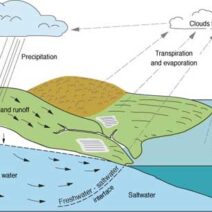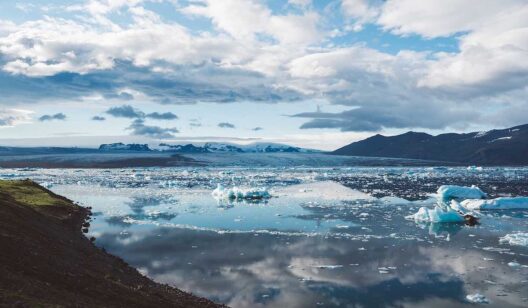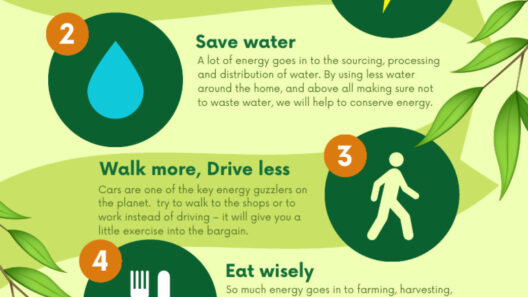The increasing urgency of climate change has illuminated the intrinsic value of energy conservation. Our planet’s finite resources necessitate a paradigm shift toward sustainable practices. However, despite the compelling advantages of energy conservation, various challenges impede progress. This exploration delves into the multifaceted challenges of energy conservation and elucidates potential strategies for overcoming them.
One of the foremost challenges is the **lack of awareness** among consumers and businesses regarding the importance of energy conservation. Many individuals remain unaware of the consequences of excessive energy consumption. Misinformation, coupled with a general apathy towards environmental issues, breeds ignorance that stifles collective action. To combat this, educational initiatives must be prioritized. Workshops, seminars, and targeted digital campaigns can foster a deeper understanding of energy conservation, elucidating its benefits not only for the environment but also for cost savings in everyday operations.
Alongside lack of awareness, there exists a significant **cultural resistance** to behavioral change. Habits are notoriously difficult to alter. Societal norms often glorify high consumption lifestyles, promoting the idea that more is better. Transitioning to energy-efficient practices requires a profound shift in cultural perceptions. Engaging community leaders and influencers can catalyze this transformation. By portraying sustainable practices as desirable and trendy, communities can slowly restructure their values, promoting a culture of conservation that resonates at multiple societal levels.
Complexity in the **infrastructure** supporting energy systems also poses a considerable hurdle. Many countries depend on outdated electrical grids that are inefficient and ill-equipped to accommodate renewable energy sources. Transitioning to smarter energy infrastructures entails substantial financial investments and political will. Governments can facilitate this transition by incentivizing the adoption of modern technologies and funding research into innovative solutions. Public-private partnerships may also serve as a conduit for advancing infrastructure development, ensuring that energy systems evolve in tandem with contemporary demands.
Economic factors further complicate energy conservation efforts. The initial costs associated with implementing energy-efficient technologies can be prohibitively high for both consumers and businesses. This is exacerbated by the short-term focus of many stakeholders, who prioritize immediate financial returns over long-term sustainability. To mitigate economic concerns, establishing financial incentives, such as tax breaks or subsidies for energy-efficient appliances and practices, can encourage investment. Additionally, developing innovative financing models can alleviate the burden on consumers, making energy conservation technologies more accessible.
Technological challenges also pose significant barriers to energy conservation. While many advancements have been made in energy efficiency, the rapid pace of technological evolution can leave outdated solutions perpetuating wasteful practices. The **integration of emerging technologies** such as IoT (Internet of Things) and AI (Artificial Intelligence) in energy management presents an exciting opportunity. Utilizing smart technologies can streamline consumption patterns, allowing for real-time monitoring and adjustments that promote conservation. Investing in research and development will be key in consistently updating technologies to match the latest advancements in sustainability.
Moreover, regulatory hurdles often stunt the potential for energy conservation initiatives. By employing regulations that prioritize old practices, governments inadvertently hinder innovation and the adoption of new technologies. An overhaul of regulatory frameworks to accommodate and encourage the integration of sustainable practices is imperative. Policymakers should engage with industry stakeholders to create adaptive legislation that supports the development and proliferation of innovative energy solutions. Collaborative policymaking can foster an ecosystem conducive to energy conservation.
The **interconnectedness of global energy markets** introduces an additional layer of complexity. Energy dependence creates challenges for nations in implementing independent conservation measures. International collaborations and agreements aimed at reducing global energy consumption are essential. Generating a collective commitment to energy conservation can galvanize efforts, leading to shared solutions that transcend borders. Global platforms for dialogue and cooperation can help synchronize conservation strategies, ensuring that all stakeholders contribute to a sustainable future.
In the realm of individual consumer choices, the overwhelming array of information and products can lead to **decision fatigue**. Consumers may feel paralyzed by the myriad options available, making it difficult to discern the most effective conservation strategies. Simplifying information and emphasizing product efficacy can help alleviate this confusion. Clear labeling, straightforward recommendations, and resource availability can empower consumers to make informed decisions, guiding them toward effective energy conservation practices.
Ultimately, the **psychological barriers** to energy conservation cannot be overlooked. Cognitive dissonance—a mental discomfort experienced when confronted with conflicting beliefs—can lead to denial of the necessity for conservation. To combat this, narratives that resonate on an emotional level must be crafted. Personal stories that highlight the tangible benefits of energy conservation can create connection and inspire action, transforming understanding into commitment.
The intricate web of challenges surrounding energy conservation is daunting, yet the opportunities for solutions are equally profound. By fostering awareness, embracing cultural shifts, investing in infrastructure, alleviating economic burdens, innovating through technology, reforming regulations, promoting collaboration, simplifying consumer choices, and addressing psychological barriers, society can forge a pathway toward effective energy conservation. Such a concerted effort not only promises a sustainable future but also paves the way for a cultural renaissance centered on stewardship of our planet.
In conclusion, while the challenges to energy conservation are multifaceted and complex, they are not insurmountable. Through a combination of education, cultural transformation, technological advancement, and collaborative governance, a world that prioritizes sustainability is within our reach. The imperative to act is clear; the time to shift perspective is now. Energy conservation is not just an obligation—it is a profound opportunity for innovation, community building, and collective progress toward a healthier planet.







